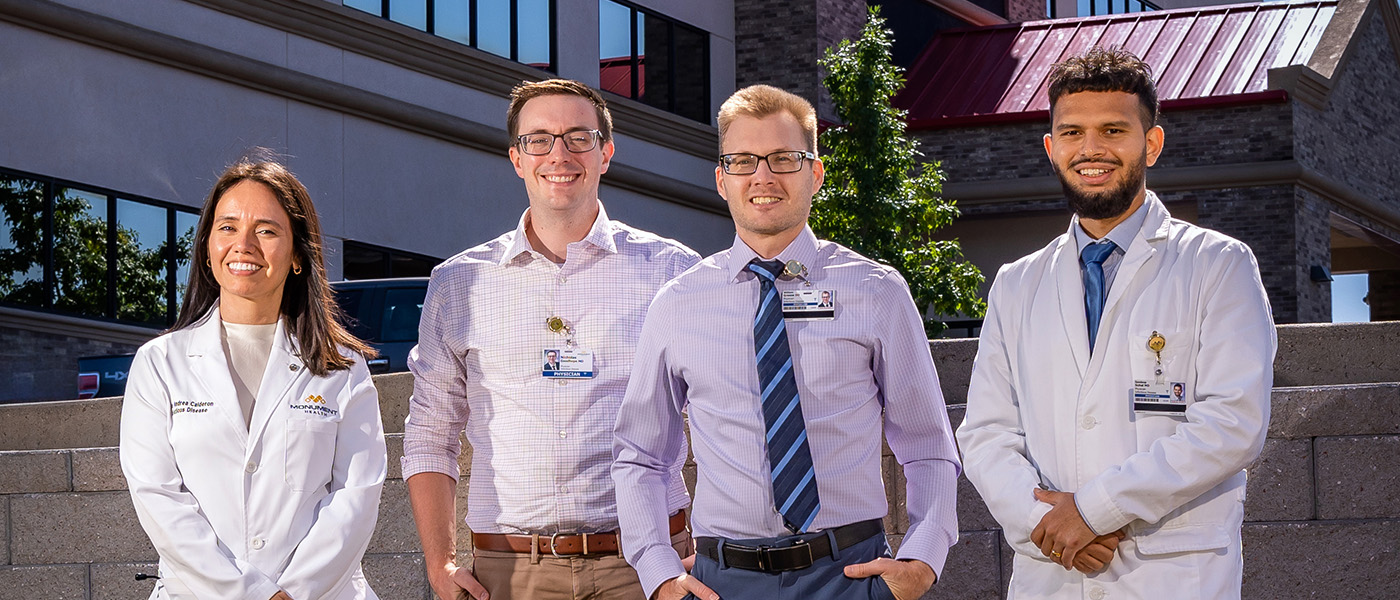Sandeep Sohal, M.D., grew up in Toronto and was fascinated as a child any time his parents took him to see a physician. “When we were sick, a doctor would prescribe antibiotics, and it was really cool because you can fix something pretty quick — it was almost like magic,” he said.
As he got older, Dr. Sohal was naturally drawn to biology and eventually attended medical school in the Caribbean. He did clinical rotations in Detroit, completed his residency in internal medicine in Brooklyn, and then went back to Detroit to complete his fellowship in infectious diseases.
Dr. Sohal’s fellowship took place during the COVID-19 pandemic. “I think that time really showed me that infectious diseases are everywhere,” he said. “And that out of nowhere, your reality can change.” The pandemic, though challenging, served to galvanize Dr. Sohal’s resolve to help people through this field of medicine. “From that point I really knew I wanted to be on the frontlines, in the trenches, fighting infectious diseases.”
What is an Infectious Disease Specialist?
The pandemic has shined a spotlight on this medical specialty in recent years. “It was kind of amazing because it totally changed everything — literally overnight,” said Dr. Sohal. “I don’t know of any profession that has changed so much so quickly.”
Interest in this field of medicine has certainly grown in recent years, however, infectious disease experts have always played a vital role in the health care of communities throughout the world. But what is this specialty all about?
“I like to explain it as a field where we try to fix something, first of all,” explained Dr. Sohal. Infectious disease’s propensity to cure the conditions it’s treating sets it apart from other medical specialties. “Conditions like diabetes and blood pressure require chronic treatment; you can’t technically cure those conditions, but you can work to prevent complications.”
Infectious disease as a specialty represents some significant overlap in medical skills. “It’s a convergence,” said Dr. Sohal. “Things like medicine, surgery, pharmacy and also antibiotics. We have to wear different hats.” When pinpointing an infectious disease, these specialists use their vast medical knowledge to do some detective work to ensure that their recommended treatment is as precisely effective as possible. “Is it bacteria? Is it a virus? Is it not infectious? We really have to dig deeper. And sometimes there’s information that maybe no one else knows that we have to dig up through a very detailed history.”
When explaining what this field of medicine is like, Dr. Sohal likes to reference the TV show “House,” starring Hugh Laurie. “In that show, Dr. House is an infectious disease physician. So I tell people this field of medicine is kind of like that show — maybe just less witty and fewer jokes.”
Impact on the Community
The topic of infectious diseases is paramount to the discussion around public health. One issue that Dr. Sohal and others keep at the forefront of their minds regarding public health is drug resistance. “We can prevent our hospital and the local area from getting more drug-resistant organisms,” Dr. Sohal said. “And that’s a big part of our job, too — thinking about which antibiotic we’re using from a community perspective. We want to be able to narrow antibiotic use down to specific drugs for specific infections and do that for just the right number of days.”
Dr. Sohal reported that these intentional efforts around antibiotic use in the Black Hills region have supported above-average results compared to other geographical areas in the country.
A Growing Team
Monument Health recently announced that the infectious disease team will be expanding. “We’re very appreciative to Monument Health for seeing the value of infectious disease and expanding the team,” said Dr. Sohal. “We’re very happy to welcome three new providers this year. Andrea Calderon, M.D., William Greene, D.O. and Nicholas Goodhope, M.D.”
This increased capacity of Monument Health’s infectious disease specialists will continue to ensure that patients are receiving the best care possible. According to Dr. Sohal, all medical specialties benefit from a strong presence of infectious disease specialists. “Studies have shown that the presence of an infectious disease physician results in improved outcomes and care for patients. And if you think about it,” he said, “that makes sense. There’s usually some component of an infectious process or at least a concern of one. Many times we can help stop antibiotics quicker or determine just the right antibiotic to use. Since our recent hire of three new infectious disease physicians, we hope to expand our practice in the Black Hills to match the growth of the community and continue to provide the best care and outcomes possible for our patients. I’m excited to see how things will progress in the next few years.”

